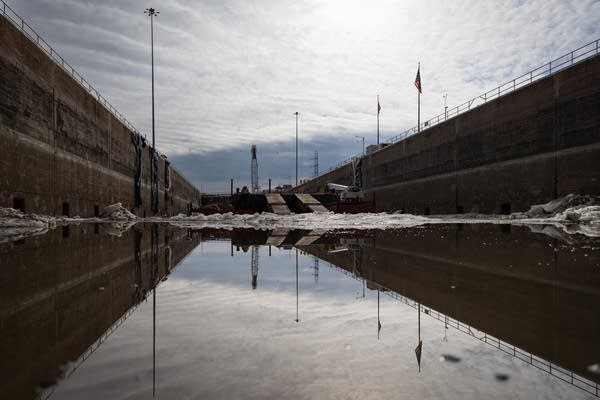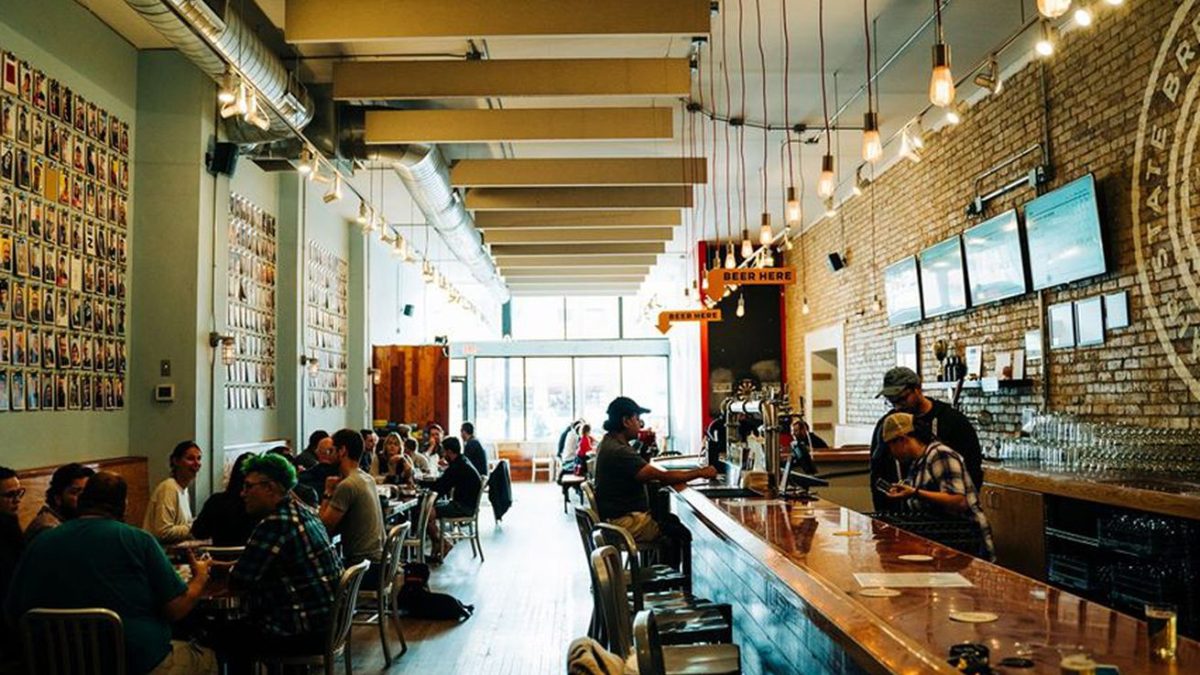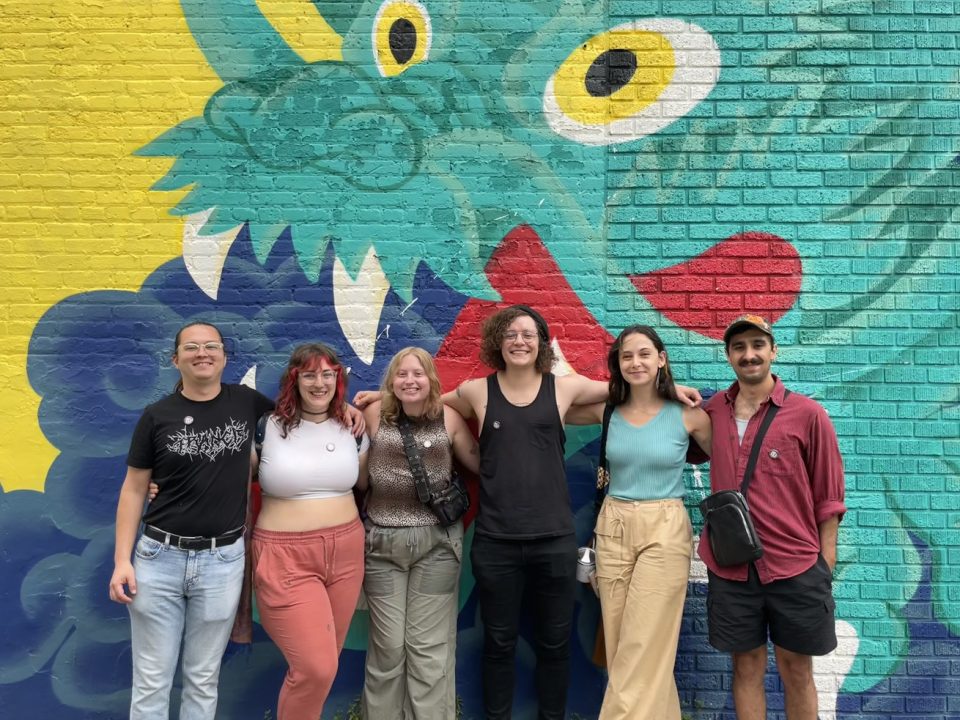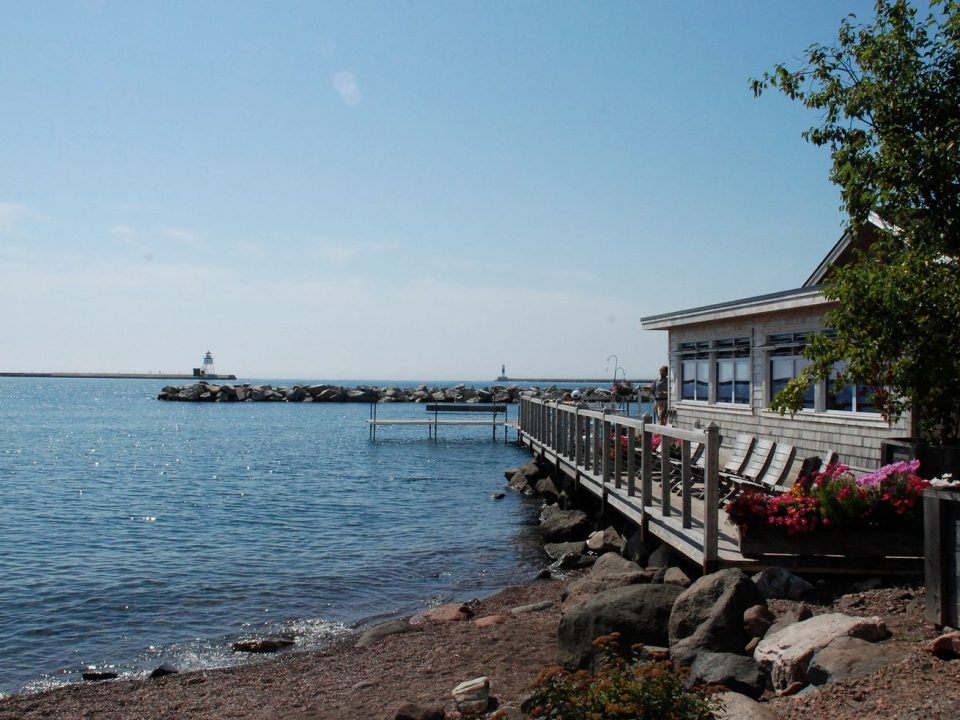
What is Temu, and should you let your parents order from it?
February 14, 2024
Rare sight: See inside an empty Mississippi River lock and dam as it’s cleared for repairs
February 15, 2024The Northeast Minneapolis brewery will remain open as it works to overcome a sizable debt
Minneapolis’s Fair State Brewing Cooperative filed for Chapter 11 bankruptcy protection on February 13, according to federal court records. Chapter 11 filings are known as “reorganization” bankruptcy, which means that Fair State will continue to operate its business with a court-approved plan to pay creditors over time.
Founder and CEO Evan Sallee tells Eater that impacts of the pandemic — namely a drop in distribution revenue, supply chain issues, and changes in consumer behavior — led to the filing. Sallee says that Fair State missed out on nearly $2 million in economic injury and disaster relief due to bureaucratic circumstances: The brewery needed its tax returns to be fully processed to receive the money, but Sallee says the returns were on backlog with the IRS and weren’t processed before the relief program ended. (He says, however, that Fair State was able to receive $150,000 early in the pandemic.)
“The short version of it is that the pandemic dug a hole for us as a business, and we tried to move heaven and earth to dig out of it, and ultimately we couldn’t quite get there on our own,” he says. “We need to use this tool to reorganize, restructure, and get on the other side as a healthy and sustainable business.”
Fair State stands apart in the Cities’ brewery scene not only for its cooperatively owned model but for its union — in 2020, it became one of the country’s very first craft breweries to unionize. Its Central Avenue taproom is a popular gathering space for Minneapolis’s Northeast neighborhood, and it distributes its beers to restaurants and liquor stores around the country.
Foot traffic in Fair State’s taproom dropped about 20 to 25 percent when the pandemic hit, Sallee says, and it’s never fully recovered. When bars and restaurants across town shuttered overnight, the brewery lost about 35 percent of its distribution revenue. As for supply chain issues, Sallee says there are “a million examples” he could point to — a particularly expensive one was when Fair State had to switch beer can suppliers, going to “enormous lengths” to procure cans from as far as Sri Lanka.
Co-founders Niko Tonks and Matt Hauck left full-time employment with Fair State in the past year for personal “life” reasons, though both have been involved in planning through the bankruptcy process, Sallee says. The decision to file for bankruptcy protection was collaborative, involving the brewery’s member-elected board of directors.
Fair State’s list of 100-plus creditors includes local vendors like Aki’s BreadHaus and Heggie’s Pizza, distributors, consultants, city agencies, and a number of local breweries, among others. It listed $5.1 million in total liabilities on its bankruptcy petition.
As the brewery works to restructure and rebuild as a sustainable business, Sallee says, it plans to focus on growing beer production and distribution and leaning into its THC beverage line, Chill State, which he says has been “extremely successful.”
Sallee acknowledges the toll that the pandemic and its ensuing challenges have taken on Fair State workers — the brewery isn’t planning on making substantial cuts to its staff or their benefits. “We’ve prided ourselves on trying to treat our staff well and fairly and trying to provide substantial benefits,” Sallee says. “That has not been an issue for sustainability, and I don’t foresee it being an issue for sustainability moving forward.”
Nor has unionization impeded success, according to Sallee. “The reality is that the issues we’re facing are structural, but not related to the structure of our staffing, or our benefits, or anything that unionization would have gotten in the way of since day one,” he says.
There are unique challenges to being a cooperatively owned brewery, Sallee says — it can be difficult to access capital without investors to help weather financial storms. “That said, cooperatives come with their own power,” he says. “We’ve got the power of our community behind us, the community that has built us and supported us since well in advance of day one.”
As for the state of Minnesota’s craft beer industry — which has seen numerous closures and shifts in the past few years, including East Lake Craft Brewery, Clutch Brewing, and Dangerous Man’s taproom, among others — it’s tough out there, Sallee says, but there’s reason for hope. “I think a lot of folks are in a similar boat, where the pandemic put them in a big hole,” he says. “At the same time, there’s a ton of breweries making better beer than ever. There’s still a lot of reasons to be excited about Minnesota beer.”






